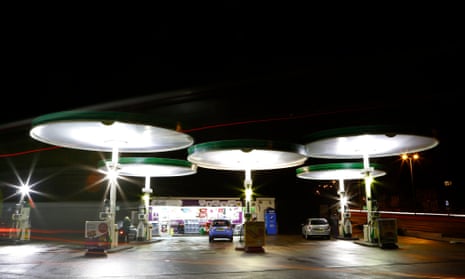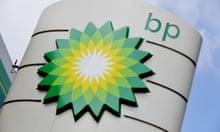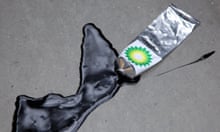BP’s first-quarter profits beat City forecasts battered by the falling oil price as the company recorded a one-off gain from the government’s changes to the taxation of North Sea oil operations.
The oil company said profit excluding non-operating items and accounting effects for the first three months of 2015 fell 20% to $2.6bn (£1.7bn).
It was the first quarter to reflect the full impact of the halving of the price of oil in the previous year. But the figure was double the $1.3bn expected by City analysts.
Profit at BP’s exploration and production business collapsed to $604m from $4.4bn a year earlier. The group’s refining business performed better than expected, more than doubling profit to $2.2bn from $1bn.
Analysts said the main cause of the forecast-beating result was BP’s decision to account for the tax changes designed to support the North Sea industry in the March budget.
With the oil industry warning that North Sea operations were in danger, George Osborne reduced the supplementary charge tax backdated to January of this year, from 30% to 20% on newer fields – reversing an increase in 2011.
BP did not give a figure for the one-off gain but it reported a $449m tax credit for the first quarter compared with a tax bill of $1.6bn tax bill a year ago.
Kim Fustier, an analyst at Edison Investment Research, said: “BP’s first-quarter results came in slightly better than expected. However, this was largely thanks to one-off positive UK tax effects rather than stronger underlying performance.”
BP defended its decision to account for the full expected benefit over the next few years in one go. It said it recorded the expected long-term cost in 2011 when the supplementary charge rose.
Oil companies and businesses that support the industry have been hit by the halving of the Brent crude oil price to $54 a barrel from a year earlier – a low not seen since the depths of the global recession five years earlier. X-Subsea UK, a subsea dredging and excavation business, entered administration yesterday with the loss of 20 jobs.
BP sought to reassure investors that its dividend, relied on by savers and pension funds, was safe with oil prices expected to stay low. BP announced a quarterly dividend of 10 cents a share, unchanged from the previous quarter.
The chief executive, Bob Dudley, said: “The dividend is the first priority within our financial framework and the board is committed to maintaining it, as we have today. We can sustain this by successfully resetting our capital and cost base and rebalancing our sources and uses of cash in the prevailing oil price environment.”
BP was forced to cut its dividend after the 2010 Gulf of Mexico oil spill. It said the total charge at the end of the quarter for the environmental disaster was $43.8bn. It cancelled two rigs in the Gulf of Mexico at a cost of $375m in the first quarter.
The first-quarter results could provide some relief for Dudley, who is trying to restore the company to full health after it was weakened financially and operationally by the Gulf of Mexico incident.
The government has made it clear that it would oppose a foreign bid for BP, but some analysts are tipping the company as a takeover target after Royal Dutch Shell’s agreed deal to buy BG Group for £42bn.
BP has cut capital spending and is selling $10bn of assets to cope with an expected prolonged low oil price. It announced its latest sell-off last week – a major North Sea pipeline system for £320m.





Comments (…)
Sign in or create your Guardian account to join the discussion